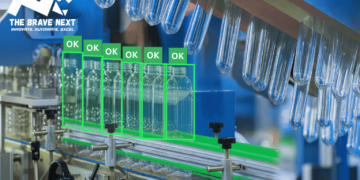Prostate cancer is one of the most common cancers affecting men globally, including India. Thanks to advancements in medical science, there are multiple effective options available for prostate cancer treatment in India. Understanding these options, the associated costs, and expected outcomes can empower patients and families to make informed decisions.
In this blog, we will explore the various treatment methods, what they entail, the financial considerations in India, and the typical prognosis patients can expect.
What is Prostate Cancer?
The prostate is a small gland in men located below the bladder, responsible for producing seminal fluid. Prostate cancer occurs when abnormal cells grow uncontrollably in the prostate gland. It typically progresses slowly but can become aggressive in some cases, spreading to other parts of the body.
Early detection significantly improves treatment outcomes, making awareness and regular screening vital.
Common Prostate Cancer Treatment Options in India
India offers a wide range of treatments for prostate cancer, from traditional surgery to the latest targeted therapies. Treatment choice depends on the cancer stage, patient age, overall health, and preferences.
1. Active Surveillance (Watchful Waiting)
For low-risk or slow-growing prostate cancer, doctors may recommend active surveillance. This involves closely monitoring the cancer through regular PSA tests, biopsies, and imaging to avoid unnecessary treatment side effects.
Who it’s for: Older men or patients with very low-risk prostate cancer.
2. Surgery (Radical Prostatectomy)
Surgical removal of the prostate gland is a common curative treatment for localized prostate cancer. India has many top hospitals offering both open and minimally invasive techniques like laparoscopic or robot-assisted prostatectomy.
Advantages:
- Potential for complete cancer removal.
- Advanced robotic surgery offers precision and quicker recovery.
Considerations:
- Possible side effects include urinary incontinence and erectile dysfunction.
3. Radiation Therapy
Radiation uses high-energy rays to kill cancer cells. It can be delivered externally (external beam radiation therapy) or internally (brachytherapy). Many Indian cancer centers provide state-of-the-art radiation technology including IMRT and proton therapy.
Advantages:
- Non-invasive and effective for localized and locally advanced cancer.
- Can be combined with hormone therapy for better outcomes.
4. Hormone Therapy (Androgen Deprivation Therapy)
Since prostate cancer cells often rely on male hormones (androgens) to grow, hormone therapy aims to reduce these hormone levels or block their effects.
When used:
- In advanced or metastatic prostate cancer.
- Often combined with radiation therapy.
Methods include:
- Medications (LHRH agonists, anti-androgens).
- Surgical removal of testicles (orchiectomy).
5. Chemotherapy
Used mainly for prostate cancer that has spread or no longer responds to hormone therapy. Chemotherapy drugs target rapidly dividing cancer cells to slow progression.
6. Emerging Therapies
India is also adopting advanced treatments such as immunotherapy, targeted therapy, and radionuclide therapy (e.g., PSMA therapy) for specific cases and clinical trials.
Outcomes and Prognosis
Prostate cancer treatment outcomes in India have improved significantly due to advanced technology and expertise. Factors influencing prognosis include:
- Stage at diagnosis: Early-stage prostate cancer has nearly 100% five-year survival rate with appropriate treatment.
- Patient health: Younger, healthier patients generally recover better.
- Treatment chosen: Surgery and radiation have excellent cure rates for localized cancer.
- Follow-up care: Rehabilitation, PSA monitoring, and lifestyle adjustments impact long-term quality of life.
India’s leading cancer centers report outcomes comparable to global standards, with many patients living long, quality lives post-treatment.
How to Choose the Right Treatment Center in India?
Selecting a facility for prostate cancer treatment in India involves:
- Checking hospital accreditations: Look for NABH or JCI certified hospitals.
- Experienced specialists: Urologists, oncologists, and radiotherapists specializing in prostate cancer.
- Availability of advanced technology: Robotic surgery, modern radiation, and nuclear medicine options.
- Support services: Counseling, rehabilitation, and nutrition guidance.
- Patient testimonials and success stories.
Popular cities with top cancer care include Mumbai, Delhi, Bangalore, Chennai, and Hyderabad.
Tips for Patients and Caregivers
- Stay informed about your diagnosis and treatment options.
- Discuss side effects and post-treatment care openly with your doctor.
- Maintain a healthy lifestyle with balanced nutrition and exercise.
- Join support groups for emotional and social support.
- Keep regular follow-ups and PSA tests to monitor recurrence.
Conclusion
Prostate cancer treatment in India offers a range of effective and affordable options—from active surveillance to surgery, radiation, and emerging therapies. Early detection and choosing the right treatment center can greatly improve outcomes and quality of life.
If you or a loved one has been diagnosed with prostate cancer, consult a trusted oncologist or urologist in India to explore personalized treatment plans and take proactive steps towards recovery.
























